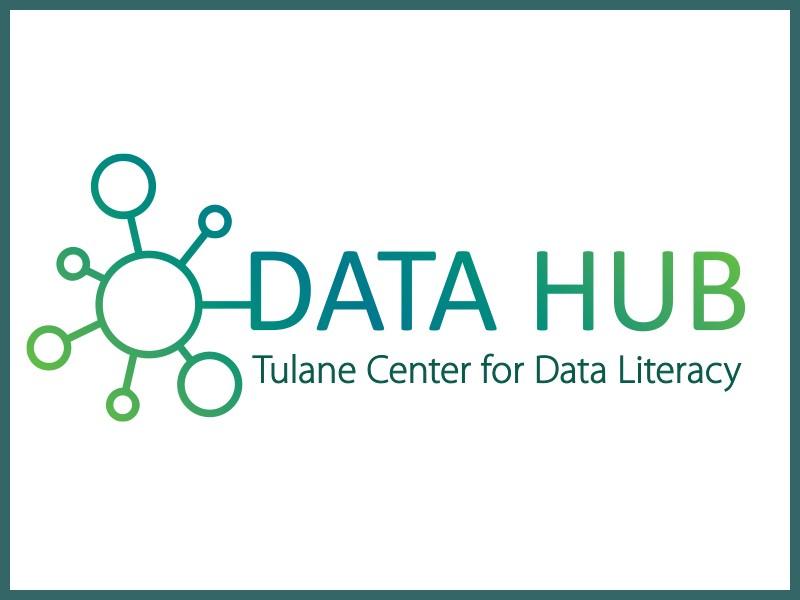Data Hub is new universitywide academic endeavor created to meet challenges of a data-driven world
A new academic curricular and research initiative — The Data Hub — is poised to make education “more fun and engaging” in this era of Big Data.
The Data Hub, Tulane University’s new Center for Data Literacy, is the educational endeavor that Tulane is creating as its Quality Enhancement Plan (QEP) for reaccreditation by the Southern Association of Colleges and Schools (SACS).
“One of the requirements for reaccreditation is that we create a Quality Enhancement Plan, a new endeavor that dramatically improves the educational experience of a sizable percentage of our students,” said Robin Forman, senior vice president for academic affairs and provost.
When Forman asked faculty and staff from across the campus their thoughts on the several possible themes that had emerged for the QEP, data literacy emerged as the top contender.
“Several folks explicitly talked about COVID-19,” said Forman. “Every day we were seeing statistics on the spread of infection and the demographics of hospitalizations, which made it increasingly clear that you need to be able to think with and about data in order to make informed decisions about your own health and safety and that of your community.
“The same could be said about many crucial questions of public policy,” Forman added, “so this QEP is, in part, about fulfilling our role to educate engaged, informed citizens.”
But this is by no means the only impetus behind The Data Hub. Data-intensive discovery has become a fundamental method of inquiry across academic disciplines and drives decision-making across industries. “The 21st century is in many ways the century of data science,” said Forman. “There’s not an industry I can think of that hasn’t been affected by the growth of data, and which isn’t using data in new and interesting ways. Data literacy is now essential for a broad array of professional opportunities.”
The Data Hub will help prepare students for professional opportunities by energizing the curriculum with compelling data projects that cut across academic fields. Every year, The Data Hub will establish a data theme to appeal across different disciplines. The theme may relate to a strategic priority of the university such as coastal issues or health inequities. Or it might involve publicly available data such as U.S. Census statistics.
“An interesting and often surprising aspect of Big Data is that people bring different perspectives to the same data and so ask different kinds of questions and often reach different conclusions,” said Forman.
The Data Hub will offer grants for both faculty and students to support data literacy efforts. Introduction to Data Science courses will also be developed. And a help desk and support staff will be available for assistance.
Forman said that there will be a series of public events to introduce The Data Hub beginning in January. Planning for The Data Hub will continue through the spring, with activity gearing up in the fall.
Every 10 years, the university undertakes SACS reaccreditation. A decade ago, Tulane’s QEP was the creation of the Center for Engaged Learning and Teaching (CELT).

